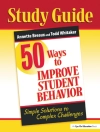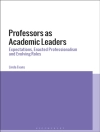Elizabeth Ferry explores how members of the Santa Fe Cooperative, a silver mine in Mexico, give meaning to their labor in an era of rampant globalization. She analyzes the cooperative’s practices and the importance of
patrimonio (patrimony) in their understanding of work, tradition, and community. More specifically, she argues that patrimonio, a belief that certain resources are inalienable possessions of a local collective passed down to subsequent generations, has shaped and sustained the cooperative’s sense of identity.
Содержание
Foreword, by June Nash
Acknowledgments
1. Introduction: Inalienability, Value, and Collectivity
2. The Santa Fe Cooperative in Guanajuato, Mexico
3. Labor, History, and Historical Consciousness
4. Recent Challenges and Responses
5. Realms of Patrimony: Mine and House
6. Patrimony, Power, and Ideology
7. Veins of Value, Rocks of Renown: An Anthropology of Mined Substances
8. Mexican Languages of Patrimony: Land, Subsoil, ‘Culture’
9. Conclusion: Not Whose Alone?
Appendix 1. Historical Silver Prices from 1975 to 2002
Appendix 2. Aspects of Mineral Production in the Santa Fe Cooperative
Notes
Works Cited
Index
Об авторе
Elizabeth Emma Ferry is assistant professor of anthropology at Brandeis University.












